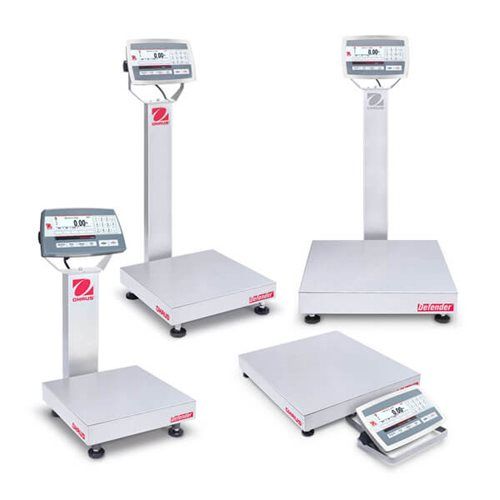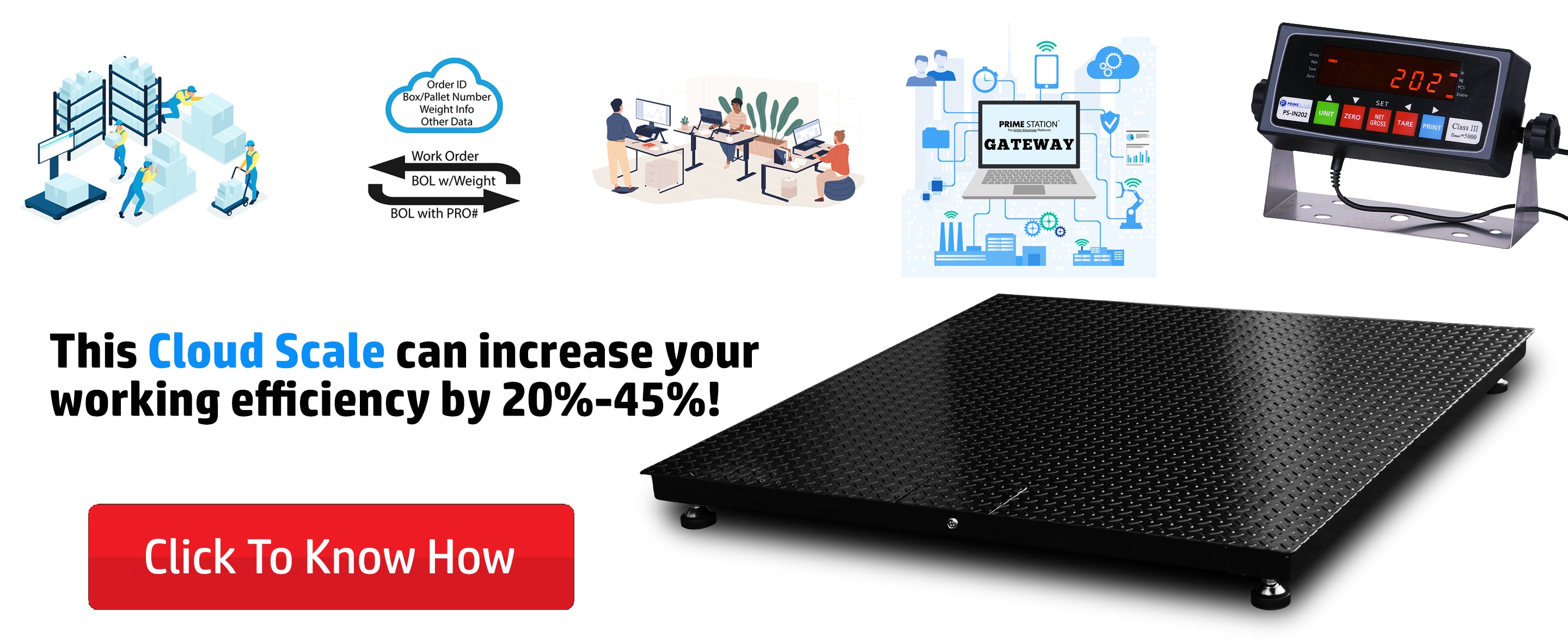Industrial scales play an important role across several industries which ensures that you are working with precise and accurate measurements of goods and materials. Whether you are working in agriculture or in a clothing industry, accuracy in the measurement process is needed everywhere and in all the businesses.
However, the understanding of how these scales function and their various types can help you across different steps that are involved in a business. Having the knowledge of these scales helps you make a confident and informed decision so that you would not regret your decision later.
In this blog post, we will discuss the working mechanisms, applications, and benefits of industrial scales. Keep reading the blog post till the end as we have discussed all the points with attention to detail.
Essential Takeaways
- Industrial scales are specifically designed for precise weight measurements in commercial and industrial settings so that your business processes do not get affected.
- They come in different types of models, as each one is suited for the purpose they are created.
- The selection of an industrial weighing scale depends on capacity, accuracy, and application.
- Proper calibration and maintenance ensure long-term accuracy and reliability.
- Understanding different industrial weighing solutions helps businesses enhance productivity and compliance.
What Are Industrial Scales?
Industrial weight scales are specialized instruments used in factories and manufacturing plants. They measure the weight of raw materials, finished products, and most importantly the transportation with heavier loads with utmost accuracy. They are not like the usual kitchen or home scales as they are designed to withstand harsh environments and conditions that your simple scale won’t survive.
Types of Industrial Scales
They play an important role across several industries and sectors that ensures accurate weight measurements are made for products and equipment. It depends on the industry and specific requirements as different scales are made to cater different type of client requirements.
Below are some of the most common types of scales and their applications.
1. Industrial Floor Scales
Industrial floor scales are large, heavy-duty platforms that are designed to weigh substantial loads efficiently so that you can see the results with precision and accuracy. These scales are commonly found in processing units where they are used to heavy stuff that is used in bulk quantities and require excessive lifting.
The best part is that they have a stable construction which allows them to work with high-capacity weights which makes them an ideal solution to be used on a commercial scale, especially when dealing with large volumes of goods.
2. Portable Industrial Scales
These ones are made while keeping in consideration the mobility and convenience required at sites at some places. These features make them an ideal choice for industries that require frequent relocations.
These scales are widely used in shipping, agriculture, and mobile weighing applications that allow users to measure weights on the go. The best part is that they have a simple and durable design that allow them to easily withstand rigorous use while maintaining the precise results.
3. Industrial Digital Scales
Industrial digital scales are fully equipped with next level weighing systems that allow you to have real-time readings with high precision. They feature LCD or LED screens, these scales display weight measurements quickly and accurately which reduces human error and most importantly enhances efficiency.
These ones are mostly used in laboratories and food processing plants, and obviously the manufacturing units where ensuring precision and accuracy is important.
4. Heavy-Duty Scales
Heavy duty weighing scales are designed for weighing on a commercial level and they are commonly found in industries such as construction and large-scale production. These scales ensure durability and reliable performance even when there are harsh conditions.
The good quality construction allows them to withstand the worst conditions while ensuring that they provide accurate measurements that are essential for carrying out vital industrial operations.
5. Industrial Truck Scales
Industrial truck scales are used for industrial weight management of trucks and their cargo, making them essential for logistics, transportation, and freight industries. Using these scales help you ensure that you are not over or under loading the stuff which ensures that you are compliant with weight regulations and playing your part in ensuring road safety.
Truck scales come in several configurations, including weighbridges and axle scales, to accommodate different transportation needs. Their utmost efficiency and precision makes them an ideal equipment to use among all the industrial weighing solutions.
How Industrial Scales Work
Below, we have shared how industrial scales work and the fundamental working principles of these scales that require an examination of their core components and technologies so that you can understand it better.
1. Load Cells: The Heart of the Scale
A load cell is one of the main components of an industrial scale. This converts a mechanical force which is weight into an electric signal which is then processed to display an accurate measurement. Most of the modern scales are using the strain gauge load cells, which deform slightly under pressure, thus altering the electrical resistance to determine weight.
2. Analog vs. Digital Systems
These ones can be termed into analog or digital types. Analog ones rely mostly on the mechanical components such as springs and levers to measure weight. While this might be an effective solution, they might lack precision and accuracy.
At the same time, using electronic sensors and microprocessors provide higher accuracy and integration capabilities with automated systems.
3. Calibration and Accuracy
Regular calibration of the scale is important for maintaining an industrial scale’s accuracy. However, it is important to understand that as the time goes by the performance and working capabilities of the scale.
Also, you must know that the frequent use and the mechanical wear may also lead to inaccuracies which makes it a periodic recalibration necessary to ensure reliable measurements.
4. Industrial Weighing Systems and Automation
Many industries integrate industrial weighing scales with automated weighing systems to improve efficiency. These systems connect to software solutions, streamlining production, inventory management, and quality control.
By reducing manual intervention, automated weighing enhances productivity, minimizes errors, and ensures compliance with industry standards.
Benefits of Industrial Scales
These scales play a crucial role in various industries, offering numerous benefits that enhance efficiency, accuracy, and compliance.
Enhanced Accuracy
Using industrial scales allows you to have precision and accuracy in your everyday working operations. You must understand that precision is immensely important in manufacturing, logistics, and retail. Industrial scales ensure exact weight measurements, minimising discrepancies that could lead to errors in the product making or customer dissatisfaction.
Cost Efficiency
When weight is measured accurately, this helps the businesses to manage raw materials and inventory effectively and helps you prevent the overuse and underuse of materials. Most importantly, this helps businesses reduce waste and cut costs that ensures that the profit is maximized and extra costs are reduced.
Regulatory Compliance
Most of the operational companies comply with the strict weight and safety regulations. Industrial weighing scales help businesses meet the required legal standard that avoids potential fines and legal disputes. With the help of using industrial scales, proper compliance can be ensured and businesses can also enhance the trust of their customers.
Time-Saving
Modern scales are designed for efficiency that allow quick and precise weight measurements. This increases the productivity and boosts the overall productivity and most importantly, this reduces the downtime of the entire process.
Improved Quality Control
Consistent weight measurements contribute to ensure product unity and ensures that the goods produced by the company meet the highest standards of the quality. This move ensures that the final production in industries like medicine and manufacturing is done the right way.
Versatility
These industrial weight scales come in various designs, from floor scales to conveyor scales, catering to different industry needs. Their adaptability makes them a valuable asset across multiple sectors so that businesses can enhance their everyday operations and redefine the parameters in which they are working.
How to Read an Industrial Scale
Wondering how to read an industrial scale? This is something that most of the businesses think is easy but for most of them this becomes a mammoth task. Here are the steps that would help you to read the industrial scale the right way without any errors and mistakes.
- Ensure that your scale is on a flat and stable surface.
- Check that the display is showing zero figures before weight is applied.
- Place the object on the scale evenly. Make sure that it does not lean towards any side.
- Read the measurement that is displayed on the screen.
- When done, remove the object and ensure that the scale resets to zero, or otherwise you might have to carry out the process again to get better results.
Industrial Scales for Sale: Where to Buy?
Accurate measurements in several sectors depend on weighing scales. Industrial gear distributors, online stores, and specialized suppliers all provide them. But picking a trustworthy source with guarantees, great customer service, and top-notch goods is absolutely vital.
The top option is Scale Depot; it provides a broad selection of scales to suit your requirements. Scale Depot makes sure you maximize your investment by offering competitive pricing, great service, and knowledgeable guidance.
Buy your industrial scales from Scale Depot today for accuracy and durability you can rely on; don't settle for less!
Final Thoughts
Industrial scales are quite important for efficiency, compliance, and cost control as well as basic weight measurement. Investing in the appropriate size suited for particular needs in the industry is a wise choice that affects the general operational performance.
Better accuracy and efficiency provided to firms by advanced weighing systems keep changing. Selecting a scale should consider not only weight capability but also how it interacts with current systems to guarantee long-term advantages.
Frequently Asked Questions (FAQs)
1. What is the difference between an industrial scale and a commercial scale?
Industrial scales are designed for heavy-duty applications and high-precision measurements, whereas commercial scales are used in retail settings, often for pricing based on weight.
2. How often should an industrial weighing scale be calibrated?
It depends on usage frequency and industry regulations. Typically, calibration should be performed at least once every six months to maintain accuracy.
3. Are industrial weighing systems compatible with inventory management software?
Yes, many modern scales integrate seamlessly with inventory software, automating tracking and reducing manual errors.
4. What are the benefits of small-scale industries using industrial weighing equipment?
Small-scale industries benefit from precise weight control, reduced waste, better inventory management, and compliance with trade regulations.
5. How can I maintain my industrial scale for long-term accuracy?
Regular calibration, keeping the scale clean, placing it on a stable surface, and avoiding overloading are key maintenance practices.
By understanding how industrial scales work and choosing the right model for specific applications, businesses can improve operational efficiency, compliance, and profitability.

